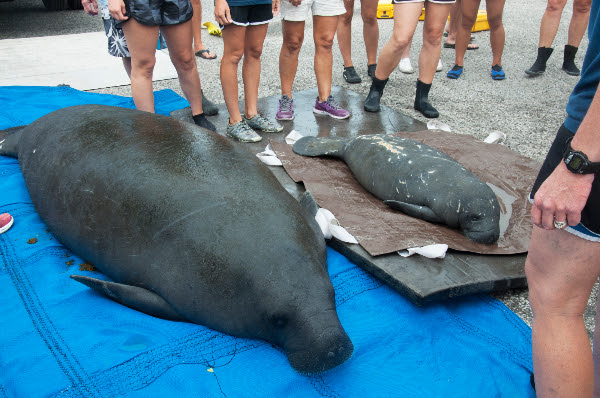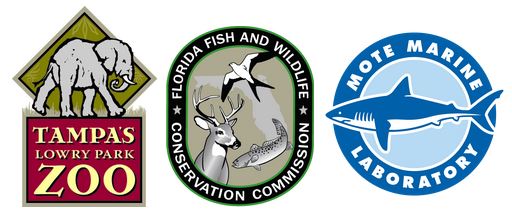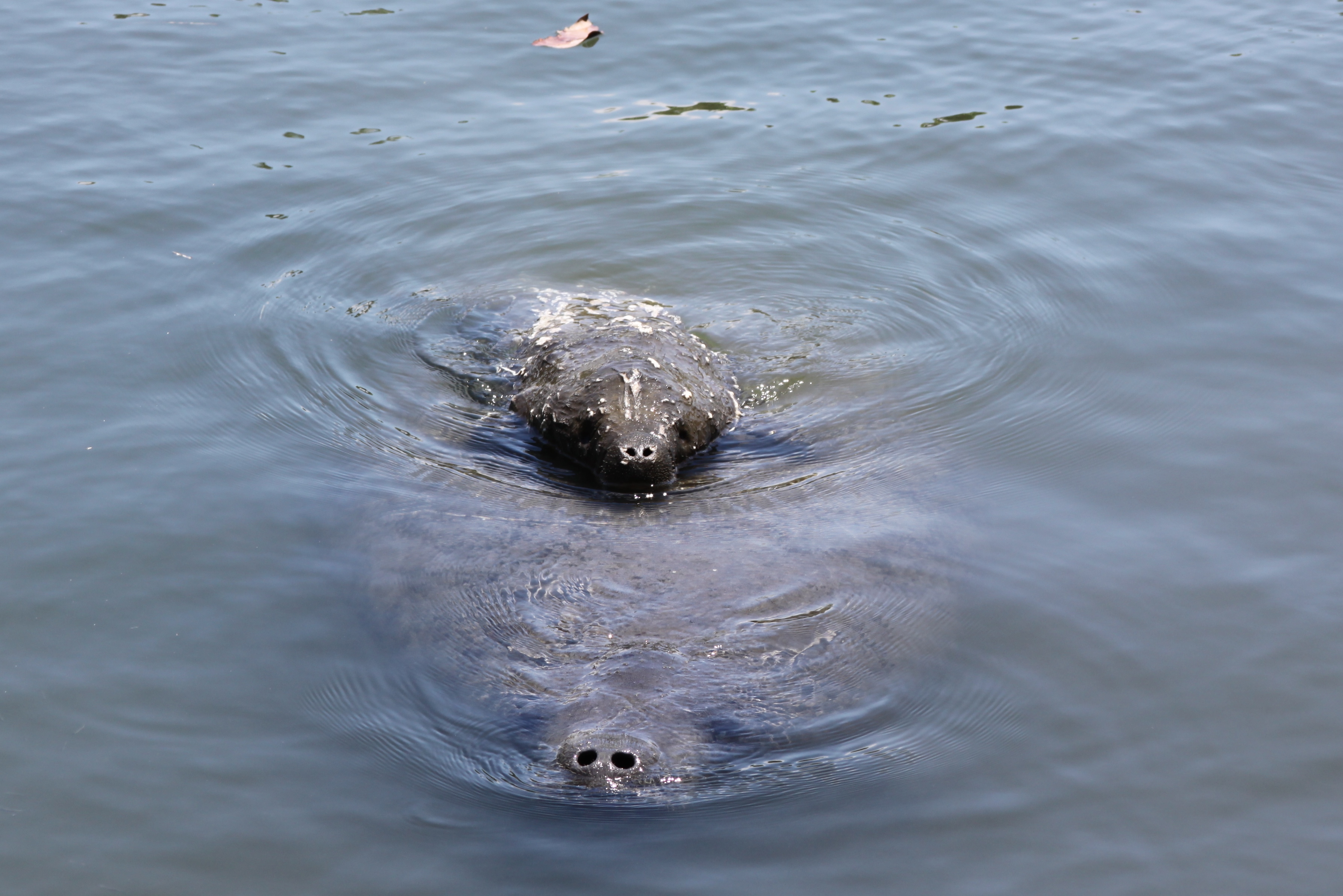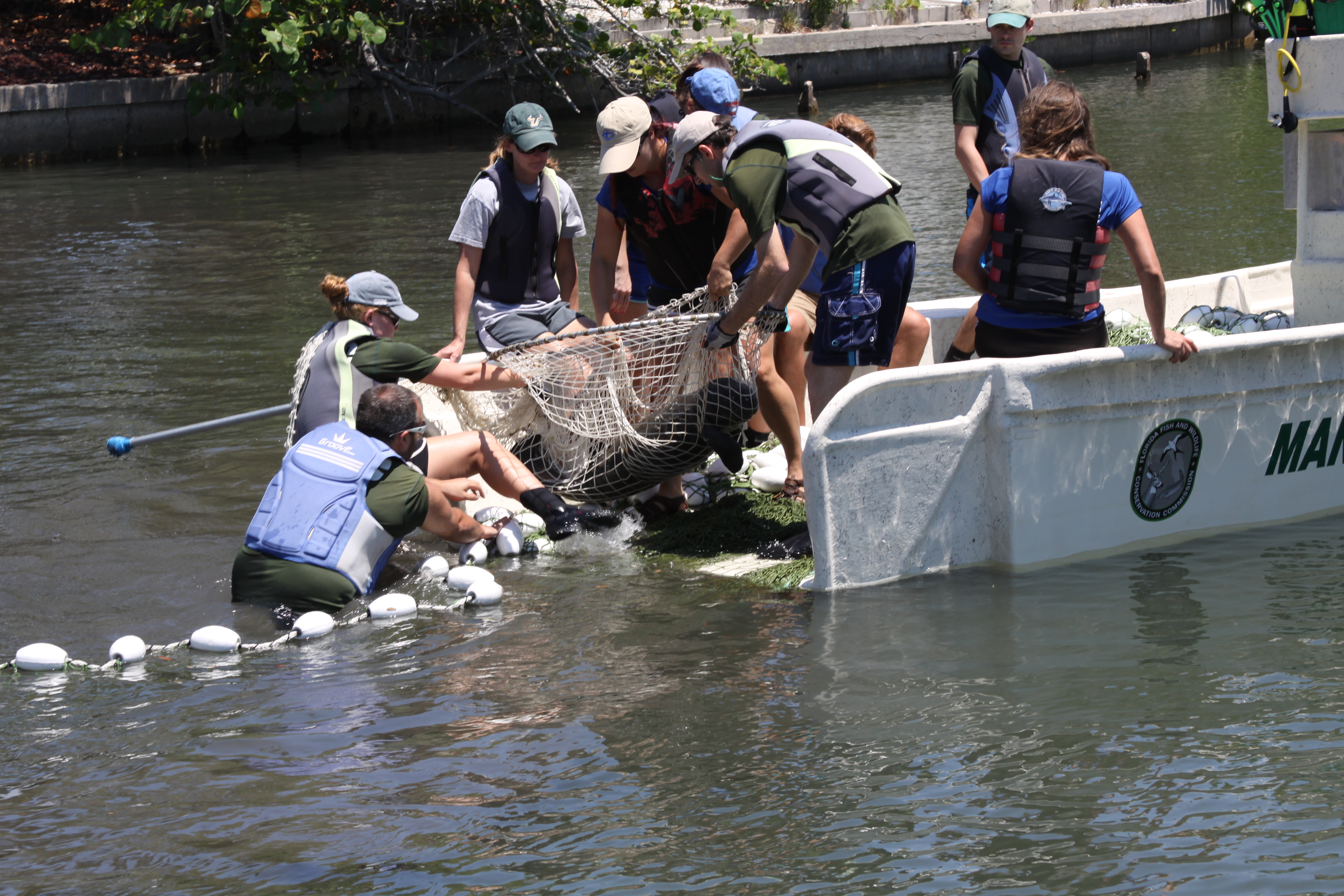Mother and baby manatee released to Sarasota Bay
 A manatee mother and her dependent calf – nicknamed Cola and Fizz – received a second chance at life in the wild after rehabilitation at the David A. Straz, Jr. Manatee Hospital at Tampa’s Lowry Park Zoo. The pair was returned to Florida waters Thursday morning by animal care staff from the Zoo and rescuers from the Florida Fish and Wildlife Conservation Commission (FWC) and Mote Marine Laboratory.
A manatee mother and her dependent calf – nicknamed Cola and Fizz – received a second chance at life in the wild after rehabilitation at the David A. Straz, Jr. Manatee Hospital at Tampa’s Lowry Park Zoo. The pair was returned to Florida waters Thursday morning by animal care staff from the Zoo and rescuers from the Florida Fish and Wildlife Conservation Commission (FWC) and Mote Marine Laboratory.
“It’s amazing and wonderful to see them released,” said Gretchen Lovewell, Manager of Mote’s Stranding Investigations Program. “This would not have been possible without tremendous partnership between the rescue and rehabilitation teams.”
Cola and Fizz were rescued May 1 from a canal along Lido Key in Sarasota County by FWC and Mote, after the calf was reported to be in distress.
“It takes a lot of us working together,” said Denise Boyd, Research Associate for FWC’s Marine Mammal Program. “A concerned citizen contacted Mote, they verified an animal in distress, and we went out together to rescue them as a team. We transported the manatees to Lowry Park Zoo, who did a fantastic job rehabilitating them.”
At the time of rescue, the male newborn was small and thin, just 61 pounds, and had superficial wounds and lesions on his back. Although the mother appeared healthy at the time of rescue, the two were transported together since the calf is dependent.
Before the manatees were rescued, Mote and FWC scientists noted that the baby manatee had several superficial wounds and lesions, shown in this photo from May 1. (Credit Mote Marine Laboratory)
“We don’t know for sure what caused the wounds on the calf,” Lovewell said. “It could be that he rubbed against barnacles on a dock and was just having trouble healing. The wounds were not consistent with a boat strike.”
Upon arrival at the Zoo’s manatee hospital, the 1,000-pound mother was given high-quality feed to help with lactation. The calf received wound care and antibiotics to prevent secondary infection.
"When the calf came in he was pretty weak,” said Molly Lippincott, Animal Keeper at Lowry Park Zoo. “We initially had to separate them and put the mom into deeper water, and the next morning we were able to put him back with mom. Then he started nursing and hasn't stopped. He was great – very attached to mom.”
After six weeks of care, Cola is healthy and strong, and Fizz has grown from 61 to 91 pounds. The pair is well-bonded and nursing is established and routine.
Just before the manatees returned to the wild, scientists from Mote’s Manatee Research Program took photos of the calf’s markings, which can be used to identify the calf if he is seen again. Mote’s photo ID surveys help scientists learn about manatee behavior and ecology, habitat use, life history and other factors necessary to understand and conserve manatees. To ID the calf from year to year, scientists must document distinct, permanent markings.
While the calf may bear some scars, he now has a new lease on life thanks to a dedicated and caring team.
“His wounds healed great,” said Lippincott from the Zoo. “He still has a little progress to make, but it's best for him to be out there and have mom teach him the ways of the world."
ORGANIZATIONS
Tampa’s Lowry Park Zoo is home to the David A. Straz, Jr. Manatee Hospital, the only non-profit hospital in the world specifically dedicated to critical care for injured, sick and orphaned wild manatees. As part of the Manatee Rehabilitation Partnership (MRP), the Zoo provides life-saving medical care to manatees rescued by the Florida Fish and Wildlife Conservation Commission (FWC). Since opening its facility in 1991, the Zoo has treated more than 370 wild manatees and reintroduced more than 210 into Florida waters. For more information, visit ZooTampa.org. Also find the Zoo on Facebook.
The Florida Fish and Wildlife Conservation (FWC) is the lead on manatee rescues, assists in manatee releases, conducts applied research, and provides scientific information used to protect, conserve and manage Florida's marine resources. For more information, visit www.MyFWC.com/Research and select “Florida Manatee.” To report a dead or distressed manatee, call the FWC’s Wildlife Alert Hotline at 888-404-FWCC (3922).
Mote Marine Laboratory & Aquarium is an independent, nonprofit 501(c)3 research organization dedicated to today’s research for tomorrow’s oceans. For more information, visit www.Mote.org. Mote’s Stranding Investigations Program (888-345-2335) responds 24 hours per day to reports of distressed or dead sea turtles, dolphins and whales in Sarasota or Manatee county waters, also assisting FWC with manatee rescues. For manatees anywhere in Florida, or for sea turtles, dolphins and whales outside Sarasota and Manatee Counties, please call FWC’s Wildlife Alert Hotline at 888-404-FWCC (3922).



